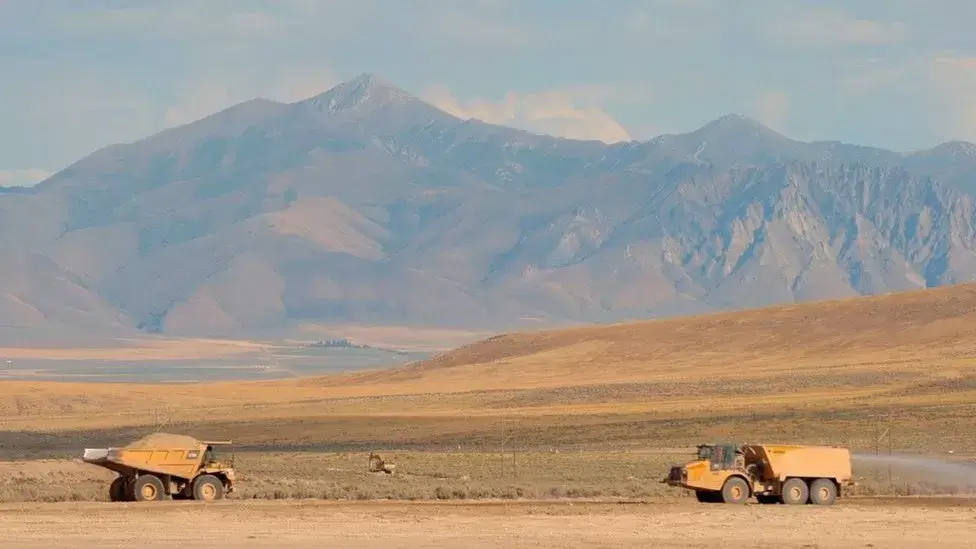In the vast expanse of the high Nevadan desert, nestled near the Oregon border, lies a sprawling deposit of lithium—an essential metal powering the production of electric car batteries. President Joe Biden, keen on boosting the United States’ electric car industry, has set his sights on extracting this valuable resource from the earth. However, what seems like a straightforward economic endeavor has spiraled into a complex web of ethical dilemmas, pitting environmentalists and native communities against the push for progress.
In this stark landscape, at an altitude of 4,000 feet above sea level, lies Thacker Pass—a region of mesmerizing beauty characterized by sagebrush valleys and desolate mountain peaks, formed by an ancient volcano. March saw the arrival of excavation equipment, marking the contentious beginning of lithium mining in this picturesque area. After years of legal battles, Lithium Americas successfully secured the rights to mine Thacker Pass, intensifying the ongoing debate.
At the heart of the discord is the fundamental question of environmental responsibility. Environmentalists like John Hadder, director of Great Basin Resource Watch, argue vehemently against expanding mining operations. They contend that such endeavors inflict severe damage on the environment, advocating for a shift in societal habits to reduce mineral demand. Hadder fears that the rush for lithium is sidelining alternate approaches to address climate change, urging for careful consideration before permitting such ventures.
However, within the environmental community, opinions diverge sharply. Glen Miller, a former academic at the University of Nevada and a supporter of the Thacker Pass mine, emphasizes the importance of lithium in combating climate change. Miller’s stance is grounded in the urgent need to electrify the transportation industry and combat climate change. He believes that relying solely on behavioral changes, such as driving less, is not a practical solution, underscoring the critical role lithium plays in this transition.
The controversy deepens as it intertwines with indigenous rights and historical injustices. The Shoshone-Bannock and Paiute tribes, under the banner of The People of the Red Mountain, view Thacker Pass as a sacred site, marking an atrocity in 1865 when their ancestors were allegedly massacred by the US Cavalry. Ka’ila Farrell-Smith, a member of this group, decries the mining project as a form of “green colonialism.” She argues that native voices are being silenced in the pursuit of environmental goals, drawing attention to the inherent injustice of prioritizing climate change mitigation over indigenous rights.
Amidst these debates, the mining company, Lithium Americas, and its vice-president of government affairs, Tim Crowley, assert the necessity of lithium mining for American self-sufficiency in the electric car industry. Crowley emphasizes the need for further development and more lithium production, highlighting the economic opportunities that such projects bring to remote areas where well-paid jobs are scarce.
The Thacker Pass mine, scheduled to produce lithium for General Motors by 2026, represents just the tip of the iceberg. With vast lithium reserves in the region, multiple companies eye Thacker Pass and its neighboring areas for future mining ventures. As ambitions clash and ethical considerations intensify, the delicate balance between progress, environmental preservation, and indigenous rights hangs in the balance. The allure of a greener future clashes with the harsh realities of the present, prompting society to grapple with challenging questions about sustainable development and the cost of progress.





